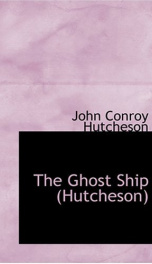Hutcheson John Conroy

Anonymity is derived from the Greek word ανωνυμία, meaning "without a name" or "namelessness". In colloquial use, anonymous typically refers to a person, and often means that the personal identity, or personally identifiable information of that person is not known. More strictly, and in reference to an arbitrary element (e.g. a human, an object, a computer), within a well-defined set (called the "anonymity set"), "anonymity" of that element refers to the property of that element of not being identifiable within this set. If it is not identifiable, then the element is said to be "anonymous". The term "anonymous message" typically refers to message (which is, for example, transmitted over some form of a network) that does not carry any information about its sender and its intended recipient. It is therefore unclear if multiple such messages have been sent by the same sender or if they have the same intended recipient. Sometimes it is desired that a person can establish a long-term relationship (such as a reputation) with some other entity, without his/her personal identity being disclosed to that entity. In this case, it may be useful for the person to establish a unique identifier, called a pseudonym, with the other entity. Examples of pseudonyms are nicknames, credit card numbers, student numbers, bank account numbers, and IP addresses. A pseudonym enables the other entity to link different messages from the same person and, thereby, the maintenance of a long-term relationship. Although typically pseudonyms do not contain personally identifying information, communication that is based on pseudonyms is often not classified as "anonymous", but as "pseudonymous" instead. Indeed, in some contexts, anonymity and pseudonymity are separate concepts. However, in other contexts what matters is that both anonymity and pseudonymity are concepts that are, among other things, concerned with hiding a person's legal identity. In such contexts people may not distinguish between anonymity and pseudonymity. The problem of determining whether or not the identity of a communication partner is the same as one previously encountered is the problem of authentication. An example: Suppose that only Alice, Bob, and Carol have the keys to a bank safe and that, one day, the contents of the safe are missing (without the lock being violated). Without any additional information, we do not know for sure whether it was Alice, Bob or Carol who opened the safe; the perpetrator remains anonymous. In particular, each of the elements in {Alice, Bob, Carol} has a 1/3 chance of being the perpetrator. However, as long as none of them has been identified as being the perpetrator with 100% certainty, we can say that the perpetrator remains anonymous. Anonymity is not an absolute. That is, the degree of anonymity one enjoys may vary. In the above example, if Carol has an ironclad alibi at the time of the perpetration, then we may deduce that it must have been either Alice or Bob who opened the safe. That is, the probability of the elements {Alice, Bob, Carol} of being the perpetrator is now 1/2, 1/2, and 0 respectively. This clearly amounts to a reduction of the perpetrator's anonymity (i.e. although the perpetrator still remains anonymous, it is now more likely than before that (s)he is either Alice or Bob). Anonymity is a result of not having identifying characteristics (such as a name or description of physical appearance) disclosed. This can occur from a lack of interest in learning the nature of such characteristics, or through intentional efforts to hide these characteristics. An example of the former would include a brief encounter with a stranger, when learning the other person's name is not deemed necessary. An example of the latter would include someone hiding behind clothing that covers identifying features like hair color, scars, or tattoos, in order to avoid identification. In some cases, anonymity is reached unintentionally, as is often the case with victims of crimes or war battles, when a body is discovered in such a state that the physical features used to identify someone are no longer present. Anonymity is not always found in such morbid situations, however. As an example, a winner of a lottery jackpot is anonymous (one of however many play the lottery) until that person turns in the winning lottery ticket. There are many reasons why a person might choose to obscure their identity and become anonymous. Several of these reasons are legal and legitimate - many acts of charity are performed anonymously, as benefactors do not wish, for whatever reason, to be acknowledged for their action. Someone who feels threatened by someone else might attempt to hide from the threat behind various means of anonymity, a witness to a crime can seek to avoid retribution, for example, by anonymously calling a crime tipline. There are also many illegal reasons to hide behind anonymity. Criminals typically try to keep themselves anonymous either to conceal the fact that a crime has been committed, or to avoid capture. Anonymity may also be created through a gradual eroding of ownership information. This particularly applies to quotations deemed anonymous. For example, the quote, "Ignorance is Bliss" originally had a known author, but, over time, information on author's identity was obscured and has disappeared. One way this authorship is obscured is through the evolution of the phrase by modification or addition to the original, which has become particularly prolific in modern times. For example, "Ignorance is Bliss" is only in the form it is in now through a long train of evolution. In fact the phrase has most recently received a modern modification in some areas resulting in a new (and much more cynical) anonymous phrase "Ignorance is Bliss...and I know everything." Anonymity may reduce the accountability one perceives to have for their actions, and removes the impact these actions might otherwise have on their reputation. This can have dramatic effects, both useful and harmful. In conversational settings, anonymity may allow people to reveal personal history and feelings without fear of later embarrassment. Electronic conversational media can provide physical isolation, in addition to anonymity. This prevents physical retaliation for remarks, and prevents negative or taboo behavior or discussion from tarnishing the reputation of the speaker. This can be beneficial when discussing very private matters, or taboo subjects or expressing views or revealing facts which may put someone in physical, financial, or legal danger (such as illegal activity, or unpopular or outlawed political views). With few perceived negative consequences, anonymous or semi-anonymous forums often provide a soapbox for disruptive conversational behavior. The term Internet troll is sometimes used to refer to those who do this online. Relative anonymity is often enjoyed in large crowds. Different people have different psychological and philosophical reactions to this development, especially as a modern phenomenon. This anonymity is an important factor in crowd psychology. Anonymity is also often referred to as simply Anon. Anonymous commercial transactions can protect the privacy of consumers. Some consumers prefer to use cash when buying everyday goods (like groceries or tools), to prevent sellers from aggregating information or soliciting them in the future. Credit cards are linked to a person's name, and can be used to discover other information, such as postal address, phone number, etc. The ecash system was developed to allow secure anonymous transactions. When purchasing taboo goods and services, anonymity makes many potential consumers more comfortable with or more willing to engage in the transaction. Many loyalty programs use cards which personally identify the consumer engaging in each transaction (possibly for later solicitation, or for redemption or security purposes), or which act as a numerical pseudonym, for use in data mining. Anonymity can also be used as a protection against legal prosecution. For example, when committing a robbery, many criminals will obscure their faces to avoid identification. In organized crime, groups of criminals may collaborate on a certain project without revealing to each other their names or other personally identifiable information. The movie The Thomas Crown Affair depicted a fictional collaboration by people who had never previously met and did not know who had recruited them. The anonymous purchase of a gun or knife to be used in a crime helps prevent linking an abandoned weapon to the identity of the perpetrator. There are two aspects, one, giving to a large charitable organization obscures the beneficiary of a donation from the benefactor, the other is giving anonymously to obscure the benefactor both from the beneficiary and from everyone else. There are many reasons this is done. Anonymous charity has long been a widespread and durable moral precept of many ethical and religious systems, as well as being in practice a widespread human activity. A benefactor may not wish to establish any relationship with the beneficiary, particularly if the beneficiary is perceived as being unsavory. Benefactors may not wish to identify themselves as capable of giving. A benefactor may wish to improve the world, as long as no one knows who did it, out of modesty, wishing to avoid publicity.[1] Attempts at anonymity are not always met with support from society. There is a trend in society to mistrust someone who makes an effort to maintain their anonymity. This is often summed up in the statement, "You wouldn't want to stay anonymous unless you had something to hide." The implication is that there is no legitimate reason to obscure one's identity from the world as a whole. Anonymity sometimes clashes with the policies and procedures of governments or private organizations. In the United States, disclosure of identity is required to be able to vote. In airports in most countries, passengers are not allowed to board flights unless they have identified themselves to some sort of airline or transportation security personnel, typically in the form of the presentation of an identification card.
do you like this author?
What readers are saying
What do you think? Write your own comment on this book!
write a commentWhat readers are saying
What do you think? Write your own comment on this author!
write a commentBook list

The Wreck of the Nancy Bell
Series:
Unknown
Year:
Unknown
Raiting:
4/5
Illustrated by W. S. Stacey --This text refers to an alternate Paperback edition.
Show more
add to favoritesadd In favorites

The White Squall
Series:
Unknown
Year:
Unknown
Raiting:
1/5
Illustrated by J. Schonberg --This text refers to an alternate Paperback edition.
Show more
add to favoritesadd In favorites
Book list

The Wreck of the Nancy Bell
Series:
Unknown
Year:
Unknown
Raiting:
4/5
Illustrated by W. S. Stacey --This text refers to an alternate Paperback edition.
Show more
add to favoritesadd In favorites

The White Squall
Series:
Unknown
Year:
Unknown
Raiting:
1/5
Illustrated by J. Schonberg --This text refers to an alternate Paperback edition.
Show more
add to favoritesadd In favorites

Teddy
Series:
Unknown
Year:
Unknown
Raiting:
3.5/5
Illustrated by A.M.S. --This text refers to an alternate Paperback edition.
Show more
add to favoritesadd In favorites

She and I, Volume 2
Series:
Unknown
Year:
Unknown
Raiting:
3.5/5
John Conroy Hutcheson (1840-1897) was a British author of novels and short stories about life aboard ships at sea. He was born in Jersey, Channel Islands, in 1840, and died in Portsea Island, in late 1896 or early 1897. Some of his works with a nautical theme include: On Board the Esmeralda (1885), The Wreck of the Nancy Bell (1885), The Penang Pirate (1886), Fritz and Eric (1886), Tom Finch's Monkey (1886), The White Squall (1887), The Island Treasure (1889), Afloat at Last (1890), Young Tom Bowling (1896), Bob Strong's Holidays (1897) and The Ghost Ship (1903). --This text refers to an alternate Paperback edition.
Show more
add to favoritesadd In favorites

She and I, Volume 1
Series:
Unknown
Year:
Unknown
Raiting:
4.5/5
John Conroy Hutcheson (1840-1897) was a British author of novels and short stories about life aboard ships at sea. He was born in Jersey, Channel Islands, in 1840, and died in Portsea Island, in late 1896 or early 1897. Some of his works with a nautical theme include: On Board the Esmeralda (1885), The Wreck of the Nancy Bell (1885), The Penang Pirate (1886), Fritz and Eric (1886), Tom Finch's Monkey (1886), The White Squall (1887), The Island Treasure (1889), Afloat at Last (1890), Young Tom Bowling (1896), Bob Strong's Holidays (1897) and The Ghost Ship (1903). --This text refers to an alternate Paperback edition.
Show more
add to favoritesadd In favorites

Picked up at Sea
Series:
Unknown
Year:
Unknown
Raiting:
4/5
Purchase of this book includes free trial access to www.million-books.com where you can read more than a million books for free. This is an OCR edition with typos. Excerpt from book: CHAPTER III. TAKEN ABACK. "What is the matter?" exclaimed the passenger, clutching hold of the steward's leg under the idea that it was the cuddy table, and contriving to get into a sitting position on the cabin floor, as the Susan Jane lurched to and fro, swishing the water backwards and forwards, along with the plates and dishes and broken crockery, amongst them, mixed up with bits of meat and vegetables and bread in the most inharmonious sort of medley,"What's the matter, Cap'en?" "Struck by a squall," said the skipper, getting on his feet at last, and holding on tightly to a brass rail outside the door of one of the berths, that he might not get floored again. " But, look at your patient, the boy! Is he mad, or what?" "Golly!" ejaculated the steward, also finding his legs again, Mr. Rawlings having released them as soon as he sat up. " Me tink him goin' hab fit!" The captain's professional instincts roused him even more rapidly than did a loaf of soppy bread which at that moment was dashed in his face by the counter swish of the water against the side of the cabin, and he sprang up ready for action as cool and collected as possible, considering the circumstances. Before Mr. Rawlings or the skipperwho both rushed forward at once to where the boy was standing could reach him, however, or the negro steward, who was directly in his way, but was too dumfounclered to CAUGHT BY A SQUALL. 25 prevent him, he made one leap over the table and rushed out of the cabin, with the same set look of terror, or some unearthly expression which they could not absolutely define, on his face, the blood streaming down from under the bandage across his forehead, making his appearance ghastly and uncanny, as the Scotch say, in the extreme. He resembled more a galvanized corps...
Show more
add to favoritesadd In favorites

The Penang Pirate
Series:
Unknown
Year:
Unknown
Raiting:
3.5/5
John Conroy Hutcheson (1840-1897) was a British author of novels and short stories about life aboard ships at sea. He was born in Jersey, Channel Islands, in 1840, and died in Portsea Island, in late 1896 or early 1897. Some of his works with a nautical theme include: On Board the Esmeralda (1885), The Wreck of the Nancy Bell (1885), The Penang Pirate (1886), Fritz and Eric (1886), Tom Finch's Monkey (1886), The White Squall (1887), The Island Treasure (1889), Afloat at Last (1890), Young Tom Bowling (1896), Bob Strong's Holidays (1897) and The Ghost Ship (1903). --This text refers to an alternate Paperback edition.
Show more
add to favoritesadd In favorites

On Board the Esmeralda
Series:
Unknown
Year:
Unknown
Raiting:
4.5/5
John Conroy Hutcheson (1840-1897) was a British author of novels and short stories about life aboard ships at sea. He was born in Jersey, Channel Islands, in 1840, and died in Portsea Island, in late 1896 or early 1897. Some of his works with a nautical theme include: On Board the Esmeralda (1885), The Wreck of the Nancy Bell (1885), The Penang Pirate (1886), Fritz and Eric (1886), Tom Finch's Monkey (1886), The White Squall (1887), The Island Treasure (1889), Afloat at Last (1890), Young Tom Bowling (1896), Bob Strong's Holidays (1897) and The Ghost Ship (1903). --This text refers to an alternate Paperback edition.
Show more
add to favoritesadd In favorites

The Island Treasure
Series:
Unknown
Year:
Unknown
Raiting:
4.5/5
Illustrated by W. S. Stacey --This text refers to an alternate Paperback edition.
Show more
add to favoritesadd In favorites

Fritz and Eric
Series:
Unknown
Year:
Unknown
Raiting:
5/5
John Conroy Hutcheson (1840-1897) was a British author of novels and short stories about life aboard ships at sea. He was born in Jersey, Channel Islands, in 1840, and died in Portsea Island, in late 1896 or early 1897. Some of his works with a nautical theme include: On Board the Esmeralda (1885), The Wreck of the Nancy Bell (1885), The Penang Pirate (1886), Fritz and Eric (1886), Tom Finch's Monkey (1886), The White Squall (1887), The Island Treasure (1889), Afloat at Last (1890), Young Tom Bowling (1896), Bob Strong's Holidays (1897) and The Ghost Ship (1903). --This text refers to an alternate Paperback edition.
Show more
add to favoritesadd In favorites

Afloat at Last
Series:
Unknown
Year:
Unknown
Raiting:
4/5
John Conroy Hutcheson (1840-1897) was a British author of novels and short stories about life aboard ships at sea. He was born in Jersey, Channel Islands, in 1840, and died in Portsea Island, in late 1896 or early 1897. Some of his works with a nautical theme include: On Board the Esmeralda (1885), The Wreck of the Nancy Bell (1885), The Penang Pirate (1886), Fritz and Eric (1886), Tom Finch's Monkey (1886), The White Squall (1887), The Island Treasure (1889), Afloat at Last (1890), Young Tom Bowling (1896), Bob Strong's Holidays (1897) and The Ghost Ship (1903). --This text refers to an alternate Paperback edition.
Show more
add to favoritesadd In favorites

Young Tom Bowling
Series:
Unknown
Year:
Unknown
Raiting:
4.5/5
Illustrated by John D. Greene --This text refers to an alternate Paperback edition.
Show more
add to favoritesadd In favorites

Crown and Anchor
Series:
Unknown
Year:
Unknown
Raiting:
4.5/5
"Excerpt from the book..."This book is by a really good contemporary authority on how vessels ofthe Royal Navy were managed in the late nineteenth century, thereforeevery page rings true. Some of the best parts are quite early in thebook, when our hero and his ship go to investigate a sinking wreck inthe Bay of Biscay, which had been reported to them by a French warshipthey had encountered.
Show more
add to favoritesadd In favorites

Bob Strong's Holidays
Series:
Unknown
Year:
Unknown
Raiting:
3.5/5
John Conroy Hutcheson (1840-1897) was a British author of novels and short stories about life aboard ships at sea. He was born in Jersey, Channel Islands, in 1840, and died in Portsea Island, in late 1896 or early 1897. Some of his works with a nautical theme include: On Board the Esmeralda (1885), The Wreck of the Nancy Bell (1885), The Penang Pirate (1886), Fritz and Eric (1886), Tom Finch's Monkey (1886), The White Squall (1887), The Island Treasure (1889), Afloat at Last (1890), Young Tom Bowling (1896), Bob Strong's Holidays (1897) and The Ghost Ship (1903). --This text refers to an alternate Paperback edition.
Show more
add to favoritesadd In favorites

The Ghost Ship
Series:
Unknown
Year:
Unknown
Raiting:
3/5
John Conroy Hutcheson (1840-1897) was a British author of novels and short stories about life aboard ships at sea. He was born in Jersey, Channel Islands, in 1840, and died in Portsea Island, in late 1896 or early 1897. Some of his works with a nautical theme include: On Board the Esmeralda (1885), The Wreck of the Nancy Bell (1885), The Penang Pirate (1886), Fritz and Eric (1886), Tom Finch's Monkey (1886), The White Squall (1887), The Island Treasure (1889), Afloat at Last (1890), Young Tom Bowling (1896), Bob Strong's Holidays (1897) and The Ghost Ship (1903).
Show more
add to favoritesadd In favorites

Tom Finch's Monkey
Series:
Unknown
Year:
Unknown
Raiting:
3.5/5
John Conroy Hutcheson (1840-1897) was a British author of novels and short stories about life aboard ships at sea. He was born in Jersey, Channel Islands, in 1840, and died in Portsea Island, in late 1896 or early 1897. Some of his works with a nautical theme include: On Board the Esmeralda (1885), The Wreck of the Nancy Bell (1885), The Penang Pirate (1886), Fritz and Eric (1886), Tom Finch's Monkey (1886), The White Squall (1887), The Island Treasure (1889), Afloat at Last (1890), Young Tom Bowling (1896), Bob Strong's Holidays (1897) and The Ghost Ship (1903). --This text refers to an alternate Paperback edition.
Show more
add to favoritesadd In favorites
What readers are saying
What do you think? Write your own comment on this author!
write a commentGenre
- Books / Children's Books / Literature
- Literature & Fiction
- Literature & Fiction / Classics
- Religion & Spirituality / Christianity / Literature & Fiction / Fiction
- Religion & Spirituality / Christianity / Reference
- Teens
- Books / Different genres / Entertainment / Humor / Parodies
- Literature & Fiction / Short Stories
- Literature & Fiction / Authors, A-Z / (S) / Stowe, Harriet Beecher
- Reference / Atlases & Maps / World
if you like Hutcheson John Conroy try:
readers also enjoyed
What readers are saying
What do you think? Write your own comment on this author!
write a commentGenre
- Books / Children's Books / Literature
- Literature & Fiction
- Literature & Fiction / Classics
- Religion & Spirituality / Christianity / Literature & Fiction / Fiction
- Religion & Spirituality / Christianity / Reference
- Teens
- Books / Different genres / Entertainment / Humor / Parodies
- Literature & Fiction / Short Stories
- Literature & Fiction / Authors, A-Z / (S) / Stowe, Harriet Beecher
- Reference / Atlases & Maps / World
if you like Hutcheson John Conroy try:
readers also enjoyed
Do you want to exchange books? It’s EASY!
Get registered and find other users who want to give their favourite books to good hands!

